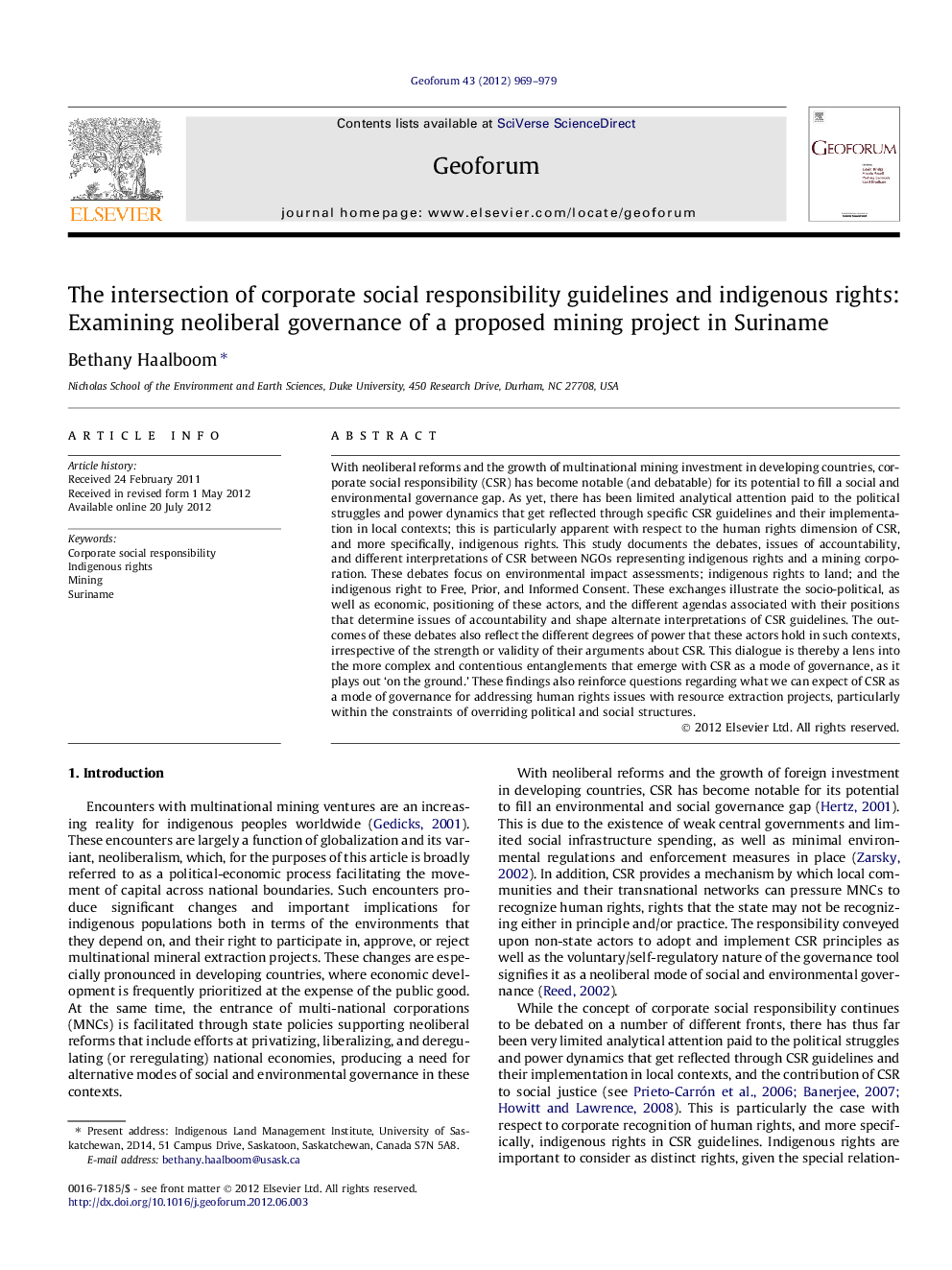| Article ID | Journal | Published Year | Pages | File Type |
|---|---|---|---|---|
| 5074189 | Geoforum | 2012 | 11 Pages |
With neoliberal reforms and the growth of multinational mining investment in developing countries, corporate social responsibility (CSR) has become notable (and debatable) for its potential to fill a social and environmental governance gap. As yet, there has been limited analytical attention paid to the political struggles and power dynamics that get reflected through specific CSR guidelines and their implementation in local contexts; this is particularly apparent with respect to the human rights dimension of CSR, and more specifically, indigenous rights. This study documents the debates, issues of accountability, and different interpretations of CSR between NGOs representing indigenous rights and a mining corporation. These debates focus on environmental impact assessments; indigenous rights to land; and the indigenous right to Free, Prior, and Informed Consent. These exchanges illustrate the socio-political, as well as economic, positioning of these actors, and the different agendas associated with their positions that determine issues of accountability and shape alternate interpretations of CSR guidelines. The outcomes of these debates also reflect the different degrees of power that these actors hold in such contexts, irrespective of the strength or validity of their arguments about CSR. This dialogue is thereby a lens into the more complex and contentious entanglements that emerge with CSR as a mode of governance, as it plays out 'on the ground.' These findings also reinforce questions regarding what we can expect of CSR as a mode of governance for addressing human rights issues with resource extraction projects, particularly within the constraints of overriding political and social structures.
⺠Exchanges surrounding corporate social responsibility (CSR) guidelines and their implementation are explored. ⺠The focus is on CSR, mining, and indigenous rights issues in Suriname. ⺠Different interpretations of CSR guidelines were found to be a function of political and economic agendas. ⺠The corporation refused to recognize Indigenous rights to land and Free, Prior, and Informed Consent through CSR. ⺠This study raised further questions about how, and whether, CSR can effectively address human rights issues.
